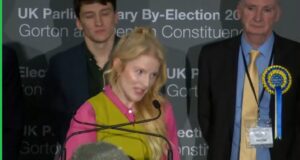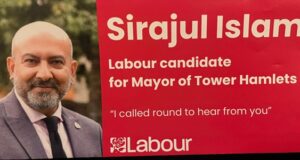THE ALL-PARTY Parliamentary Group on Social Integration has called on the Government to force all immigrants to the UK to learn English before they come to the UK or to enrol in classes as soon as they arrive. The Group, the members of which include elected MPs and non-elected members of the House of Lords, gave their reason for the call as speaking English was “the key to full participation in our society and economy”.
Revealing how out of touch they are, the Group made no reference to past governments having cut funding for English as a Second Language (ESOL) classes and Further Education in general. The current Government chipped into the debate by saying that it was spending £20 million on English language teaching – again without admitting that this was a big reduction on previous spending.
The Group also said that speaking English was a “prerequisite for meaningful engagement with most British people”. This is hardly rocket science: it is fairly obvious that living in an English-speaking nation is easier if you speak English. Similarly (the Group might have said, but didn’t) an English-speaking person going to Dhaka would find it much easier to shop, travel round and mingle if he or she spoke Bengali rather than expecting the good burghers of that fair city to converse in English. However, many immigrants currently living in the UK might point out that a fairly large barrier to integrating is not a common language but not knowing, when you speak to a native, whether they will agree that the weather is warming up a little or spit at you and tell you to take your headscarf off.
The parliamentarians also called for the Government to devolve immigration policy to Wales and Scotland and to English regions or cities with directly elected mayors. These bodies would set their own targets or quotas once the UK left the EU and took direct control of its immigration policy. The MPs pointed out that a similar devolved system applies in Canada. They did not point out, however, that Canada is a different country from the UK. It has long been a federal nation of reasonably equal states. Although there are variations in the immigration policies of the provinces, and although there have been tensions over a range of immigration issues over the last half century, there is a no tradition of some regions being much more polarised than others. In the UK, areas such as Scotland might want to increase immigration, post-Brexit. Areas such as the West Midlands would be more polarised, with right wing groups from UKIP to the EDL arguing that the devolved policy should be used to limit the number of non-white people in the area. It would be a short step from devolution to apartheid.
The above calls came in an Interim Report issued by the All-Party Parliamentary Group. Other suggestions in the report included a national induction programme for immigrants requiring them to learn about the “host” country’s laws, traditions and culture – although what the content of the programme, or who would decide it, was not made clear. More detail on all the proposals is promised in the final report.
The interim report was presented to the media by rebel Labour MP Chuka Umunna, who told reporters, “It’s clear that immigration has impacted on different countries in different ways and the pace of change has alarmed many. The government has a duty to address the lack of integration of immigrants if it is to address this. Failure to do so has left a vacuum for extremists and peddlers of hate to exploit.”
In other words, in the absence of the Government forcing immigrants to “integrate”, the racism of large sections of British society and institutions is the fault of immigrants themselves.
[Adverts]
 East London News A Force for the community…
East London News A Force for the community…




